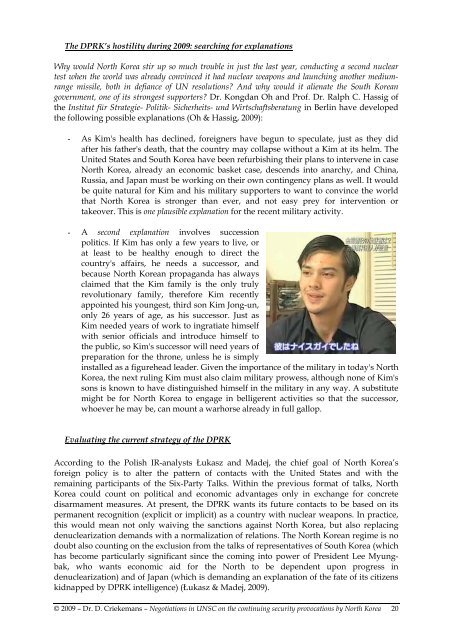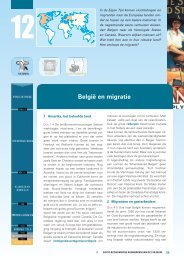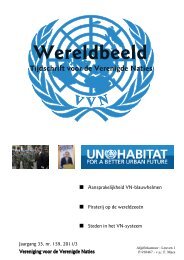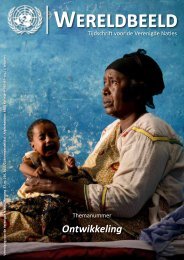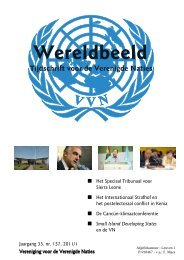Annex 5: United Nations Security Council Resolution 1874 (2009)
Annex 5: United Nations Security Council Resolution 1874 (2009)
Annex 5: United Nations Security Council Resolution 1874 (2009)
You also want an ePaper? Increase the reach of your titles
YUMPU automatically turns print PDFs into web optimized ePapers that Google loves.
The DPRK’s hostility during <strong>2009</strong>: searching for explanations<br />
Why would North Korea stir up so much trouble in just the last year, conducting a second nuclear<br />
test when the world was already convinced it had nuclear weapons and launching another mediumrange<br />
missile, both in defiance of UN resolutions? And why would it alienate the South Korean<br />
government, one of its strongest supporters? Dr. Kongdan Oh and Prof. Dr. Ralph C. Hassig of<br />
the Institut für Strategie- Politik- Sicherheits- und Wirtschaftsberatung in Berlin have developed<br />
the following possible explanations (Oh & Hassig, <strong>2009</strong>):<br />
- As Kim's health has declined, foreigners have begun to speculate, just as they did<br />
after his father's death, that the country may collapse without a Kim at its helm. The<br />
<strong>United</strong> States and South Korea have been refurbishing their plans to intervene in case<br />
North Korea, already an economic basket case, descends into anarchy, and China,<br />
Russia, and Japan must be working on their own contingency plans as well. It would<br />
be quite natural for Kim and his military supporters to want to convince the world<br />
that North Korea is stronger than ever, and not easy prey for intervention or<br />
takeover. This is one plausible explanation for the recent military activity.<br />
- A second explanation involves succession<br />
politics. If Kim has only a few years to live, or<br />
at least to be healthy enough to direct the<br />
country's affairs, he needs a successor, and<br />
because North Korean propaganda has always<br />
claimed that the Kim family is the only truly<br />
revolutionary family, therefore Kim recently<br />
appointed his youngest, third son Kim Jong-un,<br />
only 26 years of age, as his successor. Just as<br />
Kim needed years of work to ingratiate himself<br />
with senior officials and introduce himself to<br />
the public, so Kim's successor will need years of<br />
preparation for the throne, unless he is simply<br />
installed as a figurehead leader. Given the importance of the military in today's North<br />
Korea, the next ruling Kim must also claim military prowess, although none of Kim's<br />
sons is known to have distinguished himself in the military in any way. A substitute<br />
might be for North Korea to engage in belligerent activities so that the successor,<br />
whoever he may be, can mount a warhorse already in full gallop.<br />
Evaluating the current strategy of the DPRK<br />
According to the Polish IR-analysts Łukasz and Madej, the chief goal of North Korea’s<br />
foreign policy is to alter the pattern of contacts with the <strong>United</strong> States and with the<br />
remaining participants of the Six-Party Talks. Within the previous format of talks, North<br />
Korea could count on political and economic advantages only in exchange for concrete<br />
disarmament measures. At present, the DPRK wants its future contacts to be based on its<br />
permanent recognition (explicit or implicit) as a country with nuclear weapons. In practice,<br />
this would mean not only waiving the sanctions against North Korea, but also replacing<br />
denuclearization demands with a normalization of relations. The North Korean regime is no<br />
doubt also counting on the exclusion from the talks of representatives of South Korea (which<br />
has become particularly significant since the coming into power of President Lee Myungbak,<br />
who wants economic aid for the North to be dependent upon progress in<br />
denuclearization) and of Japan (which is demanding an explanation of the fate of its citizens<br />
kidnapped by DPRK intelligence) (Łukasz & Madej, <strong>2009</strong>).<br />
© <strong>2009</strong> – Dr. D. Criekemans – Negotiations in UNSC on the continuing security provocations by North Korea 20


